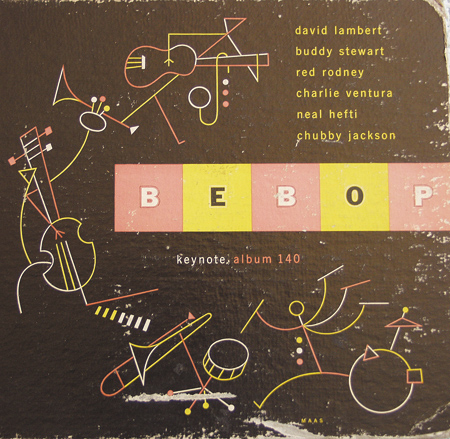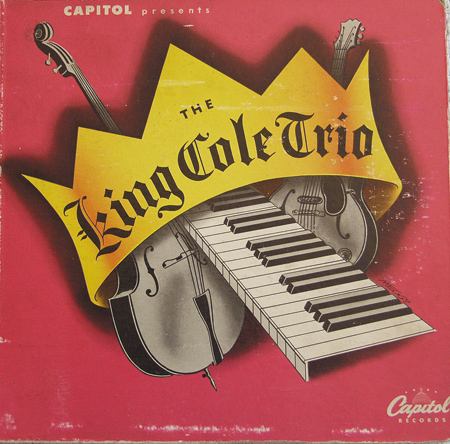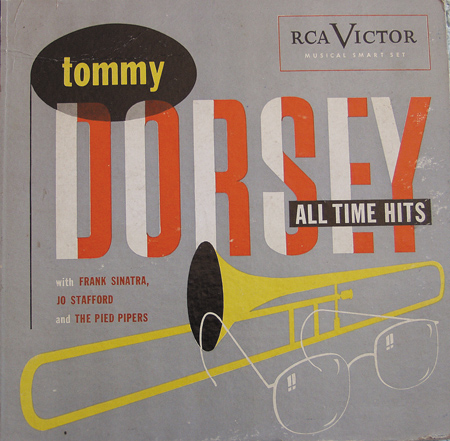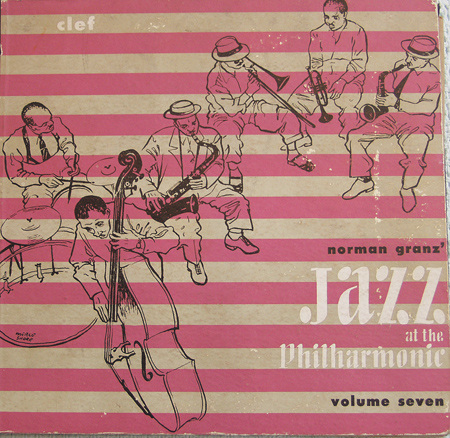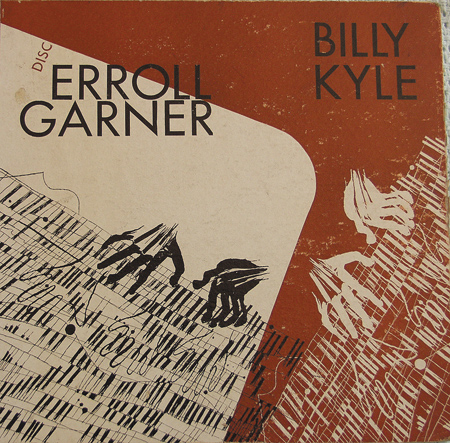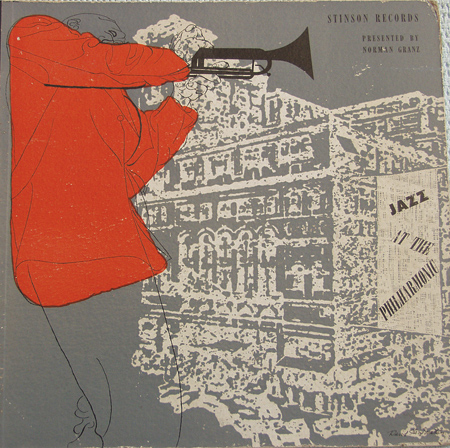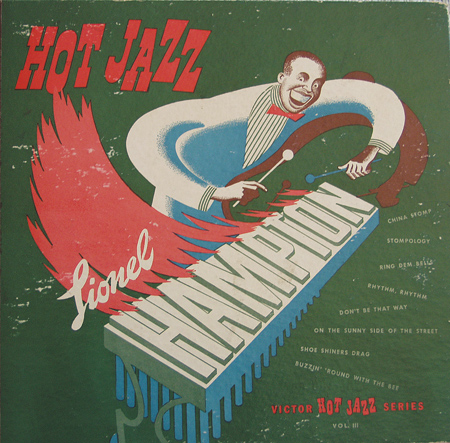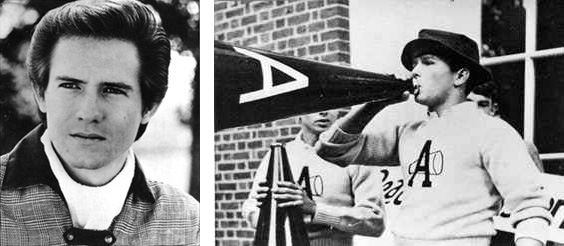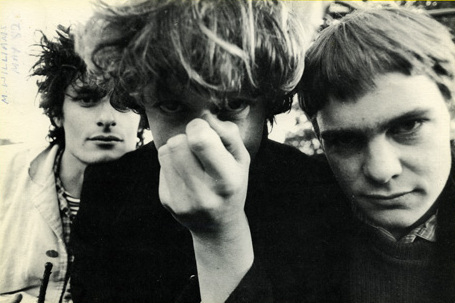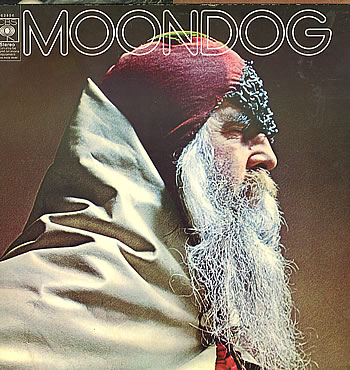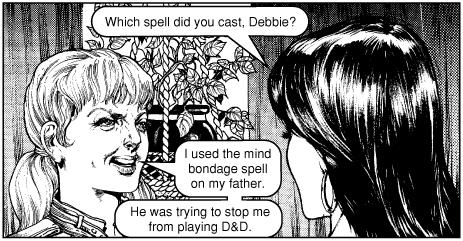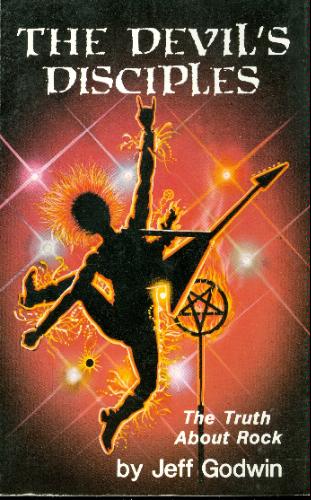Back in 2003, I took an advanced typography class where we had to do a sort of self-generated thesis project. I wound up looking at typography associated with different genres of Jamaican music, which actually held together as a topic more coherently than I’d dared hope. One of my classmates, Lora Santiago, did something around the crates of old 78s that her dad had collected. I immediately her asked for the images, and still love to just put them on as a slideshow from time to time…
Tag: music
The Miley Cyrus Online Dance Battle Meme
A year or so ago, I was having dinner with a few friends, and one of them brought his new girlfriend, a 22-year old professional surfer. This gave me the opportunity to learn about “what’s new with the kids these days.” Being a semi-semi celebrity, this surfer seemed to hang out with other C-listers, and she told us a story about some guy named Adam, a dancer who appeared in “Step Up II: The Streets,” and who then “got in Miley Cyrus’ pants” by making a “dance crew video.”
I was completely bufuddled by this story, so I asked for more details, and the surfer pulled out her iPhone and called up a youtube video that blew my mind (see below). So far as I could tell, the story began with Miley and some friend of hers making a “webcast” that involved the two of them having sleepovers and, in at least one episode, dancing around. Then (and I probably have this completely wrong), Miley saw this Adam kid (who looks sort of like a young Joey Ramone) in “Step Up II” and got his number from somebody and left a mysterious message for him. He responded by getting together with some of his professional dancer pals and challenging Miley and her pal to an “online dance battle.” This challenge escalated into a war of youtube videos, with each side getting the aid of various celebrities (dancer and otherwise) to show up the other (and it may have culminated with a huge Beat It-style dance-off on the Teen Choice Awards). And, according to this surfer, the whole gambit helped young Adam “score” with Miley.
I have nothing insightful to say about any of this except that, more than anything else I’ve seen since I left the MTV “demo,” this both made me feel very old, and also sort of impressed with the lengths the kids go to these days. Here’s Adam and his crew’s “Round Two” challenge, featuring various Hollywood b-listers (including The Lohan) and some incredible dance moves:
[youtube=http://www.youtube.com/watch?v=Gh4rDjcssrM&hl=en_US&fs=1&]
Weekend song: Let Her Dance / Don't Ever Let Me Know
I might be the only person who likes Bobby Fuller (best remembered as the guy who originally recorded ‘I Fought The Law‘) better than his obvious inspiration and fellow Texan Buddy Holly. This is kind of like saying you prefer the Monkees to the Beatles. Fuller has none of the depth and resonance of Holly (hell, Buddy Holly basically established the idea of rock ‘n’ roll recording artists writing their own material) and was fairly minor figure in comparison… but, for whatever reason, his better songs sound exactly how 50s rock songs should sound to my ears: simple, driving, all wound-up and kinetic (exactly the same qualities that the Ramones brought back into the picture).
Really, the only thing that bothers me about Fuller is his occasional eerie resemblance to George W. Bush:
In terms of a song choice, ‘Let Her Dance’ doesn’t really constitute a sleeper, in the sense that it’s probably his third or fourth best known song. But, still, no one whom I talk about music with cares about this track, and it literally might be my favorite single example of 50s-style rock ‘n’ roll, so up it goes:
Let Her Dance — Bobby Fuller Four
Then, for something more sleeper-ish, it’s hard to resist ‘Don’t Ever Let Me Know’, the pretty B-side to the ‘I Fought The Law’ single:
Pitchfork's Top Albums of 1909
From my replica Sears Catalog from 1909, check out this bogglingly weird selection of records available for order (click picture for much larger image).
There’s a whole section of ‘Laughing Songs’, for example, including a little number called ‘And Then I Laughed’. If laughing stories are more up your alley than laughing songs, you’re in luck: there’s a wide selection of ‘The Famous Uncle Josh Weatherby’s Laughing Stories.”
Also contains: jarring racism. Interestingly, the Dutch get the brunt of this almost as much as blacks do.
For more fun with the replica Sears Catalog, check out the Harris 20th Century Railroad Attachment.
Friday song: Born In The Wrong Time
(This time on a Sunday, for no particular reason.)
When I was much younger, I used to assume that the existence of any album I liked was essentially predetermined, as though god had decided ‘Let there be Rocket To Russia’. As I got older, I began to realize that a lot of these records were subject to the vagaries of adult lives and adult flakiness. Maybe a record like Fleetwood Mac’s Rumors was bound to happen. But what about all the little fly-by-night bands that dot the history of music… what if the weather is bad and the drummer decides not to bother making the drive to the recording session? What if the 19 year-old guitarist gets in a fight with the 20 year-old bassist?
Consider this fraught back story: band forms in 1978; bassist quits shortly thereafter; band breaks up later in 1979; band reforms in 1980 with a new bassist. In 1981, band decides to do an album only to discover that the small number of sound engineers in their native New Zealand all uniformly dislike their sound. Band records two EPs and a single on a friend’s four track before breaking up again in 1982. In either ’82 or ’83, the band’s guitarist and drummer — two brothers — get together to produce a few home recordings which they release under the name The Great Unwashed, a joke on their original name The Clean. In 1984, the brothers put together a band to back the new material, which includes the original bassist, now playing guitar. This lineup releases a new EP of material called Singles before breaking up again later that year.
Somewhat surprising, then, that with all this breaking-up and getting-back-together and brothers moving back and forth between Christchurch, Auckland and Dunedin, the band’s fleeting side project produced a song with the kind of perfect craftsmanship of ‘Born In The Wrong Time’ (written and sung by the original bassist, Peter Gutteridge). Not even two and a half minutes long, it nevertheless manages to create a really striking and sobering mood around an imaginative choice of subject matter:
Born In The Wrong Time — The Great Unwashed
—–
Personal story regarding The Clean: In 1989, the ever-ambitious Krafty arranged for a then-unknown Galaxie 500 to play at our high school (footage here). Later that year, the Clean reformed to do a reunion tour. This seemed like the only chance we’d ever get to see our heroes, but the Clean were playing at a bar in Boston that was impossible to get into with a fake ID (thank you, Michael Dukakis). Luckily, the booking agent for the Clean show was the same guy who had booked the Galaxie show and ‘owed a favor’ to Krafty. So, we called him up and were told, “Sure, just show up to the sound check and we’ll work it out.” Well, when we came to show, the booking agent wound up telling the doormen that we were the road crew for the Clean. This still cracks me up: the idea that three strapping men from New Zealand in their late 20s would hire two scrawny teenagers — clearly from the Boston area — to carry their gear around on tour… but, hey, whatever works.
By the way, while doing ‘research’ for this post, I wound up inadvertently googling people who feel that they’ve been born in the wrong time. Check out assorted metaphysical whimpering here, here and here. My favorite is the helpful respondent who suggest going to Renaissance Fairs in the last link as a therapeutic solution.
Friday song: The Clown
Around the time that Charles Mingus was having his psychologist write the liner notes for his albums, he released The Clown, whose title track centers around a made-up-on-the-fly story narrated by Jean Shepherd (the same guy responsible for A Christmas Story). Musicians are forever bitching about how their listeners don’t really ‘get’ them, but Mingus is the only guy I can think of to creatively channel this resentment– in this case, into a story about a clown (‘a real happy guy’) who martyrs himself to the cruel appetites of his audience:
I saw a documentary about Mingus once where they related an anecdote about a time that his band was playing in a San Francisco bar. Mingus, a notorious rage-o-holic, got pissed off because the audience kept chattering and not paying attention to the band, so he eventually proposed that the band and audience ‘trade fours’: they would play for four bars, then stop so the audience could talk for four bars. Of course, the audience got ate this up and got really into it– which is I suppose a tiny real life analogy to the storyline of ‘The Clown’.
Runnin' With The Dio
Yesterday, we lost one of the great voices of 80s metal– and popularizer of the “Il Cornuto” devil sign– Ronnie James Dio. I thought it would appropriate to lay him to rest with a passage from that Christian screed The Devil’s Disciples that I blogged on a few weeks ago. In this section, the perpetually horrified author cites Dio in a passage about the tendency of “Devil-worshiping groups” to “add and drop members left and right, changing and transforming the bands they leave, and enter into even greater strongholds of satanic strength”. As he recounts the monstrous shapeshifting of Rainbow and Black Sabbath, he offers up this defacto obituary :
A pompous little leather-lunged singer named Ronnie James Dio joined Blackmore’s new outfit, using his strong songwriting ability to pen songs about the mystic power of pyramids, witches, warlocks and werewolves. After quitting Rainbow with four albums under his belt, Dio replaced the disgusting Ozzy Osbourne as Black Sabbath’s lead vocalist. The name of the album he debuted on: “Heaven and Hell.”
[note: in the writing of Jeffrey Godwin, this is supposed to be a big ‘aha!‘ moment, where the artist’s obvious satanism is shown to be right in front of our noses]
Here are some quotes directly from Dio:
“At least I understand something about the occult, which is more than I can say about certain bands use pentagrams and upside down crosses as their emblems…”
“In order to write logically and sensible about a subject, you have to learn about it. I’m INFORMED about the darker side of our lives…”
Who’s doing the informing? Dio is not Ronnie James’ name…
[GASP]
His last name is actually Padovana. Dio means “god” in Italian. This guy calls himself and his band God!
Note that despite Godwin’s obvious revulsion towards Dio on the last point, it is conspicuous that he acknowledges Dio’s “strong songwriting ability”. Compare this to his more characteristic tone of contempt for the rest of Black Sabbath: “It seems impossible that such a ragtag bunch of misfits and weirdos could sell ten records to their relatives, much less millions of albums over a 15 year span.” Well, then.
Faeted To Pretend
I had iTunes on shuffle today and Time to Pretend by MGMT came up. The song’s been out for like a year and a half, but somehow I had never really paid attention to the lyrics before. Oh, I’d listened through the part about ‘I’ll move to Paris, shoot some heroin, and fuck with the stars’, but tended to tune out thereafter and had always just assumed that the song was about youthful hedonism and that’s all there was to it. This time, for whatever reason, I paid attention through to the end and was struck by how much in common the lyrics have with one of W.B. Yeats’ early poems, ‘The Stolen Child‘ (one of the few Yeats’ pieces I still remember vividly from a seminar I took in college). Consider…
In Yeats poem, a bunch of faeries plan to spirit off a human child to a magical land. The magical land is all good times, carousing around and staying up all night (‘To and fro we leap / And chase the frothy bubbles, / While the world is full of troubles / And anxious in its sleep’). Its allure is in its non-reality and weightlessness (consider the strange and beautiful line ‘We seek for slumbering trout / and whispering in their ears / Give them unquiet dreams’), and in the extent to which this contrasts with the mundanity and sorrow of the real world:
But then, the final stanza produces this switcheroo where we’re made to feel the longing that the stolen child will feel for the tangible, commonplace details of the real world, petty and squalid as they may be:
The sheer tangibility and realness of the lowing cows, singing kettle and vermin-infested oatmeal chest becomes the stuff of nostalgia. Time To Pretend manages a similar trick: the first half presents stardom as all models, cocaine and elegant cars, an escape from mundanity. ‘What else can we do?’ the singer asks, ‘Get jobs in offices and wake up for the morning commute?’. The first verse ends with him pledging to ‘forget about our mothers and our friends’. But then, in the second verse, we get the equivalent of brown mice bobbing in the oatmeal chest:
Suddenly worms, family members and even boredom are things to be longed for. Of course, Time To Pretend ends with a sort of resolution and renewed vow to party up to the end and eventually ‘choke on our own vomit’… but I like to think that they were really channeling Yeats and just threw this in at the end to make it an acceptable pop song. In any case, I think there’s a lot of correspondence between the two, given that one is a youth anthem and the other is all pre-Raphaelite and shit.
Friday song: Stamping Ground
Louis Thomas Hardin, aka Moondog, made a drum set from a cardboard box at age 5, lost his site at age 16 to a dynamite accident, and moved to New York City at age 27, where he lived on the streets playing music on corners dressed as a Viking.
Here are the two opening tracks from his self-titled 1969 CBS album:
Theme/Stamping Ground by Moondog
These are officially two different tracks. The first part , “Theme”, was (I think) used in the Brazil soundtrack, and the second part, “Stamping Ground”, has become a standard of sorts. They’re separated by Moondog’s odd observation that “Machines were mice and men were lions once upon a time… but now that it’s the opposite, it’s twice upon a time.” In the first copy of the album I got ahold of, these two tracks were joined together into one, so that’s the way I got used to thinking of them and how I’m presenting them.
The Devil's Disciples
One of the best ideas I ever had in my life came to me in high school, moments after some crackpot on the street had handed me one of those Jack T. Chick religious tracks that everyone’s run across at some point. I specifically remember it was one called Dark Dungeons, a stern warning about the devilish evils of role playing games:
Anyway, my epiphany was to write to the address printed on the back and present myself as a high school teacher looking for religious materials to help me save my damned and unruly students. I used my high school’s address to make the teacher ruse more believable, and sat back and waited. A few weeks later, a box containing a motherlode of religious junk appeared, including…
- a ton of those afteromentioned tracts
- These great full-size comics called The Crusaders about two musclebound guys, Tim and James, who go around busting satanic plots in small towns and are always kneeling down and praying together on the floors of supermarkets and stuff like this. There’s homoerotic tension oozing out of every page, believe you me.
- A lenghty hand-written letter (!) questioning the sincerity of my faith (it’s quite likely that my letter wasn’t entirely convincing, given that it was written by a stoned 15 year old).
But the crown jewel of this haul was a 345 page treatise called The Devil’s Disciples, written by one Jeffrey Godwin (one hopes this is a pen name), that purports to “rip to away the curtain of lies, ignorance and misconceptions about modern Rock music” and “show the Satan-worshipping world of Rock in all its sick and deceitful glory”:
In an appendix in the back, we’re informed by Godwin that he used to be a slavishly devoted metalhead before he saw the light and turned to God. The book is quite likely the funniest thing ever written, in large part due to Godwin’s prose style, which veers between wild hyperbole, leering hatred, snide condescension, pathetic gullibility and then — just when you’re thinking that the whole exercise is appallingly pitiful — unexpectedly lucid insight. Some examples…
Writing style:
“From a sneering, hip wiggling hillbilly named Elvis Presley to a blood drinking, bat biting maniac named Ozzy Osbourne, today’s Rock Stars have the full blessing of Satan in the work they do,” Godwin warns. And this is the second sentence in the book! Within the next two pages, rock music is characterized both as a “ravenous leech” and a “huge sprawling parasite”, performed by “male singers wearing heavy mascara and lipstick, fondling themselves while hissing demonic lyrics at a mesmerized audience.”
Frequently, the author gets so carried away condemning the musicians he hates that they come across as evil comic book super-villains. Still in chapter one, he delivers a scathing account of Altamont and the Rolling Stones’ (described in passing as ‘a band of depraved, drug addicted black magicians’) culpability in the disaster: “What were the Stones doing during this pandemonium? They simply continued playing as long as possible, coldly noting the chaos they had brought about, occasionally leering at one another“. [emphasis mine]. What an image!
Tragic Gullibility:
One thing that’s sad about this delightfully enjoyable book is how much the author gets taken for a ride by all the flash-in-the-pan nobody bands that were affecting a cheesy veneer of satanism in order to sell records to suburban teenage boys in the 80s. I mean, I can believe the Rolling Stones were devoted satanists… but PileDriver? Or Keel? Or jokers like Twisted Sister? Not so much.
There are a few not-so-menacing names that make it as far as Godwin’s countdown of Top 10 Most Satanic Bands Ever. Number four, for example, is Motley Crue: “A ragtag gang of foul mouthed and vulgar fornicators who openly brag of their detestable lifestyles, Motley Crue is Satan’s Pied Piper of the 80s, their siren call dragging thousands of fresh souls down the well-worn ruts of the Highway To Hell.” Yeah… in Tommy Lee’s dreams.
All in all, these parts just remind you more than anything else about how goofball mainstream metal mores were in the 80s until Nirvana restored some sense of seriousness.
(Number ten on Godwin’s public enemy list is the totally negligible W.A.S.P.)
Strange moments of lucidity:
Just when you think he’s gone totally off the rails, Godwin comes up with something strangely probable. Consider, for example, his explanation for the shooting of John Lennon: Lennon, in his telling, had dropped out of the Rock-n-Roll lifestyle by the mid-70s and was instead producing records like “Double Fantasy”, an album described as “a record filled with passionate devotion to wife and family”. In Godwin’s telling, Satan is now spurned and sends Mark Chapman after Lennon because the latter has gone off the reservation. In conclusion? “Lennon had outlived his usefulness as the Devil’s slave, and he ceast to exist”. There’s a certain logic to this– certainly, it’s more believable than ‘some random nut read too much JD Salinger and decided that Lennon needed to die.’
And, lastly, the chapter on Punks:
I can’t end this without mentioning the fantastic chapter on Punk rock (which Godwin believes in somehow tied in with England, socialism, and a determination on the part of the dark lord to overthrow capitalism). A few passages:
We remember to well what Punks and their music were like in the Seventies — a screaming, cursing, insane mob of monsters. Let’s take a look at Punk today.
Another simmering, steam-bath night is descending on Los Angeles in the sweltering summer of 1986…. In defoliated, bombed out suburbs like West Hollywood, the Punks, or “street survivors,” as they are also called…
Street survivors?
…. mass on the trashy sidewalks outside their favorite Rock & Roll clubs. California punks come from far and wide to join in Fascist sprees of Nazish violence and blood-letting, a feast of “slam dancing” that leaves many with broken bones, slashed faces and busted heads.
Some sections of Los Angeles have been completely taken over by Punks. Santa Monica Boulevard is a good example. The place is a nightmare in 3D, a living, breathing abomination, a riveting and horrible example of what thirty years of Rock & Roll has mutated and produced in our young people and our culture. If you ever drive through this area, keep your doors locked and your windows up.
Many Punk clubs here resemble fortresses with barred windows, heavy doors with peepholes and walls thick enough to repel any enemy invasion. People stand in the street, threatening passerby and harassing traffic. Others lounge on upturned garbage cans, or squat on the sidewalks, bored, waiting for some “action”.
I could really go on with this forever. But, time to sign off and go find some “action”.

